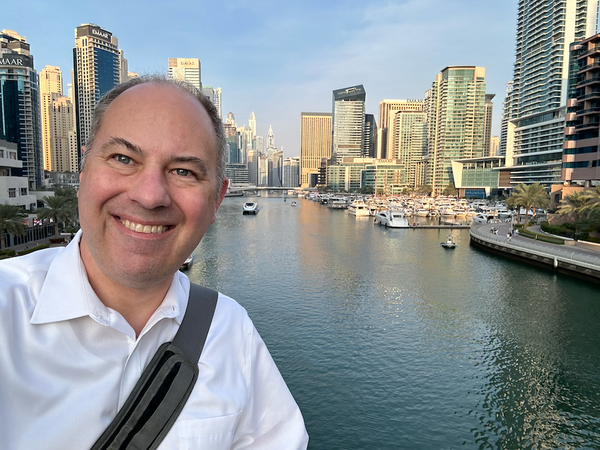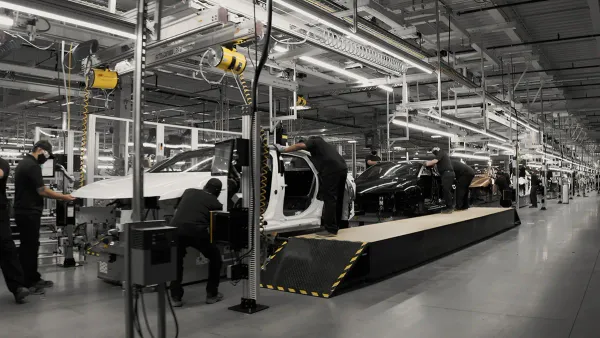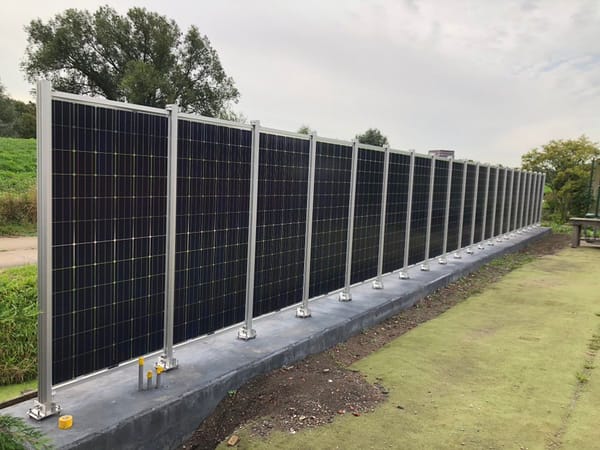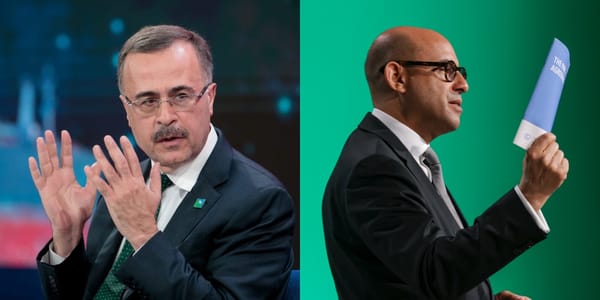Report from Dubai: The Yawning Gaps
Good evening from Dubai,
You can tell the politics are ramping up because a delegation of U.S. Senators had a press conference here. Negotiations are running out of time, to the point where some issues are simply being jettisoned as delegates focus their energies on preferred topics.
Let’s get to it.
-Mike
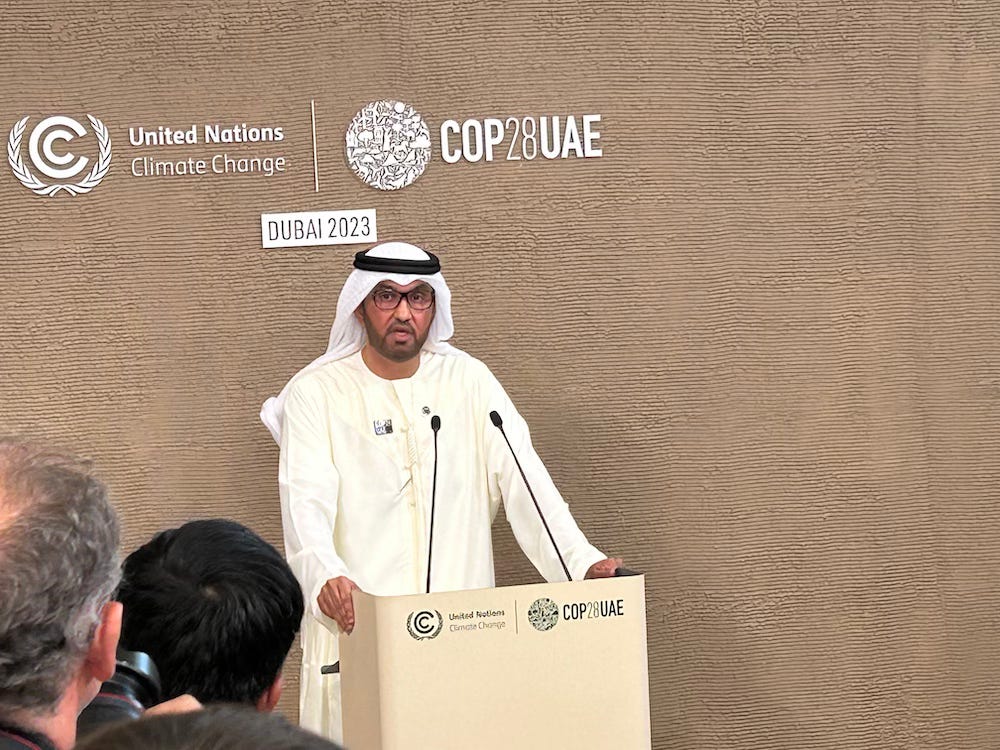
What Happened Today
The most important development today was news that the U.S. and China have been holding bilateral talks in the China pavilion, with the talks led by heads of delegations John Kerry and Xie Zhenhua. While there was no indication of progress, Xie held a press conference where he pointed to last month’s Sunnylands agreement with the U.S., which states that both sides should "accelerate renewable energy deployment in their respective economies through 2030 from 2020 levels so as to accelerate the substitution for coal, oil and gas generation".
COP President Sultan Al Jaber announced this afternoon that he was convening an impromptu meeting for all parties to work out differences over texts. “No prepared statements and no prescribed positions,” were allowed. In particular, Al Jaber noted there were still wide gaps on fossil fuel phase out, finance targets, and the Global Goal on Adaptation.
Bloomberg is reporting that Baku, Azerbaijan has cemented hosting duties for COP29 next year. This would put COP in a petrostate two years in a row and an authoritarian country that doesn’t like protests three years in a row.
Also, the International Energy Agency (IEA) released an analysis of the first week pledges made on emissions cuts, including tripling renewables, doubling energy efficiency, and cutting methane emissions. The IEA finds the cuts only get us 30% of the way towards what’s needed to stay under 1.5°C.
Seven U.S. Senators visited COP28 and held a press conference at the end of the day. Indirectly they are some of the most powerful people on site, since one of the major limiting factors in COP negotiations is what the U.S. Senate is willing to ratify. Their statements were largely self-congratulatory on passage of the Inflation Reduction Act while ignoring the role the U.S. plays in slowing down the rest of the world’s progress.
Asked for her thoughts on a fossil fuel phase out, Alaskan GOP Senator Lisa Murkowski said, “To move to a phase out does not recognize the reality we’re facing.” She was the only Republican Senator to take the trip.
Meanwhile, there’s a yawning gap between what climate activists are calling for and what ministers seem to be discussing. For instance, in a presser this morning, Greenpeace Head of Delegation, Kaisa Kosonen trumpeted that, “a collective of 106 countries issued a call for a fossil fuel phase out, and that island states are, “calling for a moratorium on new oil and gas projects.”
Yet, those countries calling for a phase out are largely non-fossil fuel producer nations, and as discussed more below, the direction among parties seems to be heading more towards a gradual “phase down”, or something involving abatement, language that groups like Greenpeace find utterly unacceptable.
Here’s a rundown on what I’ve been able to learn about negotiations today.

Fossil Fuel Phase Out
The battle lines remain steady. The EU and over 100 countries have signed a pledge for a fossil fuel phase out, while the U.S., China, and Saudi Arabia have been resisting the call – each by varying degrees.
On Thursday, Kerry told a press gathering, “If you’re going to reduce the emissions, and hit the target, you’re going to have to do some phasing out.”
Yesterday, China’s Xie told reporters, “The energy transition is extremely important... but this transition requires a period of pain.”
And then on the furthest extreme, earlier in the week Saudi Energy Minister Prince Abdulaziz bin Salman said “Absolutely not” when asked if he would support a phase out. Soon after, OPEC released a letter urging its members to oppose any language for a phase out.
Most interesting is that a sense is gelling at the conference that without approval of some sort of phase out/phase down language, COP28 will be seen as a failure. Even COP28 President and UAE oil CEO Sultan Al Jaber seems to agree.
“I’ve said that a phase down of fossil fuel is inevitable, and a decline is going to happen for sure at some time,” he said Friday afternoon.
But there’s still a great deal of squishy language surrounding phase down/out. Among them:
- If “abated” is to qualify a phase down/out, how would that word be defined?
- If there’s a phase down or out, exactly what would the milestones be?
- Would there be a “differentiation” between countries? For instance, would developed countries have to move faster than developing countries?
These are complex issues with far-ranging implications that will require a great deal of diplomatic wrangling. (For a sense of what it’s like check out this Twitter thread from an observer in the room) If the U.S. and China end up working in tandem, it is possible some agreement could get through.
A new text is expected to be issued early tomorrow morning.
Global Goals on Adaptation
As I reported Friday, developing countries desperately need more cash to protect against climate disasters. For instance, Africa lacks a continent-wide weather tracking system so locals can get adequate storm warnings. At COP26 in 2021 developed countries promised to double spending from $20 billion to $40 billion. Developing countries want that doubled again. A new text released yesterday includes no specific dollar targets but has also created a new fight over “common and differentiated responsibilities.”
Climate Home News reports that Saudi Arabia, China and a negotiating group known as the “Like Minded Developing Countries” are requiring the language, which would effectively put funding obligations on developed countries, while lifting any funding requirements from middle income countries. This language has become a major sticking point for the E.U. and U.S., jeopardizing the text entirely, making it possible that nothing will pass.
Carbon Credit Trading
According to one observer I spoke to today, discussions over private carbon trading, also known as Paragraph 6.4, have completely stalled as parties were distracted by another section of trading rules, Paragraph 6.2, which sets rules for bilateral carbon credit trade agreements.
The 6.2 trading rules have significantly few details, such as what would be an acceptable credit mechanism – either something involving newly removed carbon, like with an efficiency measure, or something more static, like forests. This difference is what has stymied discussions on 6.4, but section 6.2 is not meant to have rules about these details, since the looser structure is meant to allow bilateral agreements (treaties) to determine them.
According to the observer, none of the parties in 6.2 negotiations were happy with the proposed text, and an entire proposed draft text was junked yesterday, and negotiations were restarted from scratch this morning.
Negotiators continue to be unhappy with 6.4 text as well, but because so much energy is being spent on 6.2, the close seems to be running out on further 6.4 discussions. The U.S. and the Like Minded Developing Countries (LMDC, see above) are pushing for 6.2 to be the main track for trading carbon credits since it will allow bilateral agreements to determine the mechanism, rather than operating by U.N.-determined rules.
“No one is happy with 6.4,” said Inuit observer Sarah Olsvig this morning. “There is a lot of debate around non-market processes and how they are integrated.”
Word is that a new text for 6.2 is expected to be released early tomorrow morning. The 6.4 text is expected to be sent as is to the full COP for a take it or leave it vote on Monday.
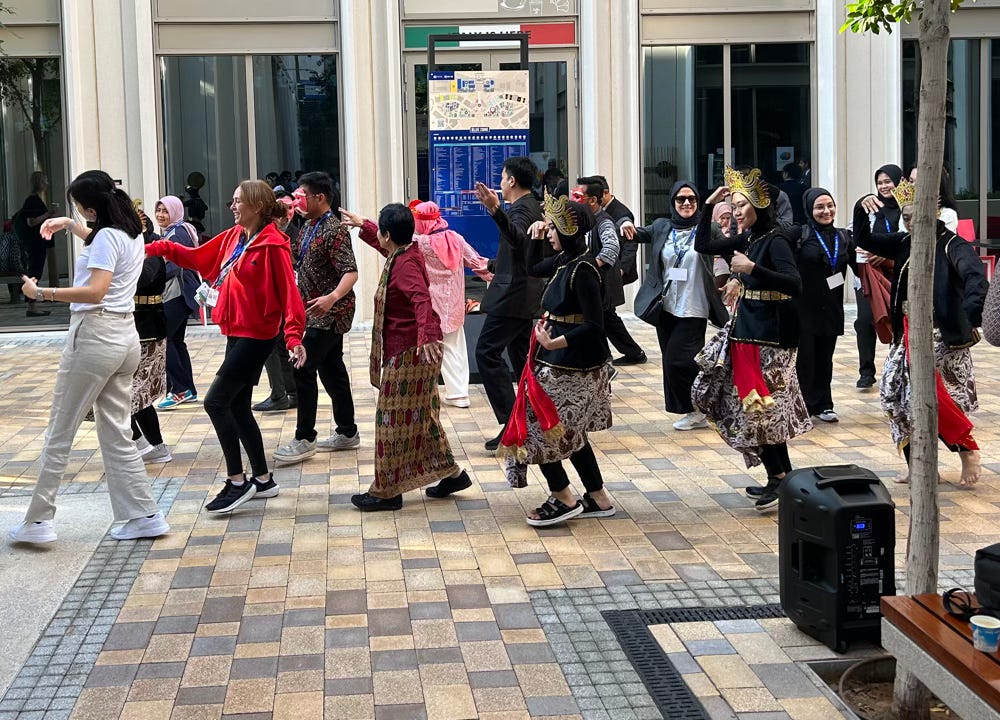
What I Did Today
The process has become entirely political at this point, and reporters are feeling it. I’ve been shuttling from one press conference to another and discovering all kinds of pressers that I’ve been missing because so many are double booked. The layout of the conference is such that the press room, the room used for government press conferences, and the room used for advocate press conferences are equidistant, and each about a seven minute walk apart. It’s impossible to cover them all, so smart groups are now holding impromptu pressers on the sidewalk just outside the press room (which is really a barn, built for about 1,000 people, complete with two food cafes)
I visited a pair of side events this morning, which was fun, because I got to see how most of the delegates are spending their time, but it felt like a million miles from the rolling set of pressers being near the negotiations. I’m not sure I can afford to do that again in the future.


